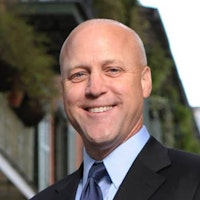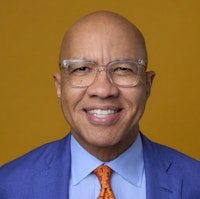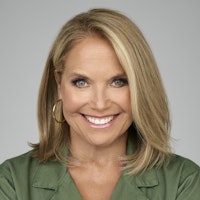

We’ve gathered the best insights from a conversation with veteran leaders who have decades of experience in government, business and philanthropy. Ford Foundation president Darren Walker, former PepsiCo CEO Indra Nooyi, and former mayor of New Orleans and former White House infrastructure coordinator Mitch Landrieu meet onstage to share their hard-earned lessons. They reflect on the qualities needed to succeed, how to guide organizations through crises and make tough decisions with empathy.
Good Choices Mean Good Consequences
What are the top qualities Mitch Landrieu looks for in leaders? "Vision, courage, and character." That doesn't mean being the best person in the world, he clarifies, but really knowing who you are and what you'll go to bat for. The worst traits a leader can have, he says, are "ignorance and arrogance."
Landrieu admits that we're faced with a lot of problems in this country, and are at a historical inflection point that could have decades-long ripple effects. "It's not your fault we're here," he tells the audience. “But to be clear, it is your responsibility — as a corporate leader, as a philanthropic leader, as a government leader, as a citizen, as a mother, as a father, brother, sister, whatever you are." He believes the everyday choices we make, both in our personal and professional lives, hold immense power. He imparts the audience with a piece of advice handed down from generations of Landrieus: "Bad choices equal bad consequences. Good choices equal good consequences."
Serve Society, Not Just Your Stakeholders
Darren Walker believes that leadership has suffered a transformation. “When was the last time we heard a leader speak of service?" he asks. "There was a time when service in the diplomatic corps, service in government, service in a nonprofit organization gave you great status in society and lifted you up." Today, however, Walker says that "we live in a society where capital has become the currency of status...That’s what happens in a society where inequality is so pervasive, because capital becomes more important as a means of understanding our identity.”
Change How You Think About DEI
“Companies have a duty of care to society,” says Indra Nooyi. But she says that the current operating model only works by passing on costs to society. That needs to change, she urges. "You can't deliver performance without purpose, and you can't fund purpose without performance. So it’s a virtuous circle."
Nooyi has advice for corporate leaders who are facing pushback against DEI and ESG programs. “If you start looking at DEI and ESG as metrics and programs that you have to do just to survive as a CEO, when the wind blows the other way you drop them, which is what CEOs are doing today. On the other hand, if you said to improve society, I have to talk to the best and brightest and lift them all up so society gets better and the company has a bigger talent pool, you would think about diversity differently. You wouldn't call it a DEI program. You’d talk about it as a talent, hiring, and retention program.”
Be Hard on the Problem, and Soft on the People
Walker points out that we have trouble tolerating complexity and messiness in our leaders. "We've lost our ability as a society to embrace the complexity and the layered nuance of the problems that we are facing," he says. "Because we demand of leaders that they exist in a binary — you're either for or against, and there's no in between — we make it harder."
Landrieu echoes this point, and believes that in many cases, "we don't want to solve problems. We just want to condemn." Whether it's at a board meeting or around the dinner table, he asks that we give each other more grace. "We have lost the ability to discuss really hard problems in a civil way." His advice? "Be hard on the problem. Be really hard on the problem. But be soft on the people.”
Watch the Full Session








